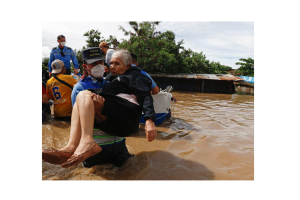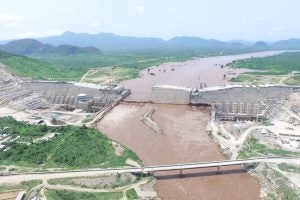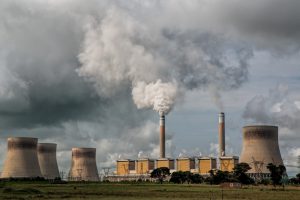 October 18, 2022
by Jesse Valente
International
Renewable Energy
October 18, 2022
by Jesse Valente
International
Renewable Energy
Queensland, Australia recently announced a renewable energy plan that makes it a model for community-backed public-private partnerships in the renewable sector. Backing from multiple levels of government, public appetite for renewable energy, and industry…
 April 30, 2022
by Eric Dolce
Climate change
International
April 30, 2022
by Eric Dolce
Climate change
International
Spring 2022 has brought big changes to America’s asylum system. On April 1st, President Joe Biden ended the controversial rule known as “Title 42” through which the Department of Homeland Security has expelled thousands of asylum seekers who crossed…
 March 29, 2022
by Sam Abrams
International
Water
March 29, 2022
by Sam Abrams
International
Water
On February 20, 2022, the Ethiopian government announced that its Grand Ethiopian Renaissance Dam (GERD) began producing electricity.[i] The GERD, located on the Nile River, is viewed as a significant economic and symbolic achievement for the embattled…
 March 25, 2022
by Abby Morenigbade
Fossil Fuels
International
March 25, 2022
by Abby Morenigbade
Fossil Fuels
International
What is the East African Crude Oil Pipeline?
In 2006, Uganda discovered what turned out to be 1.7 billion barrels of recoverable commercial oil in the Albertine Graben Region.[1] Since then, different activities relating to the exploration and potential…
 January 4, 2022
by Hunter Wiand
International
January 4, 2022
by Hunter Wiand
International
For years a CIA-linked think tank has covered Xinjiang. The current human rights crisis in the region may present a serendipitous moment for cynics in the American foreign policy establishment to pursue an old, familiar agenda.
 December 23, 2021
by Taylor Hall-Debnam
Climate change
International
December 23, 2021
by Taylor Hall-Debnam
Climate change
International
Climate Change is already having public health consequences in the global south. Global leaders have a duty to respond.
 January 29, 2021
by Eleanor Hildebrandt
Climate change
International
Oceans
Water
January 29, 2021
by Eleanor Hildebrandt
Climate change
International
Oceans
Water
The effects of climate change will make swaths of the planet uninhabitable, displacing millions of people. How can the United States’ legal system facilitate an equitable, humanitarian response to those seeking safe resettlement within its borders?
 January 15, 2021
by Sara Zaat
Air
Chemicals
Climate change
International
January 15, 2021
by Sara Zaat
Air
Chemicals
Climate change
International
Hydrofluorocarbons, an alternative to the ozone-depleting substances that damage the Earth’s protective ozone layer, are potent greenhouse gases that exacerbate climate change. These chemicals are scheduled for reduction under international law: the Kigali Amendment to the Montreal Protocol on Substances that Deplete the Ozone Layer. Will the United States join the majority of U.N. Member States in committing to phasing down its hydrofluorocarbon production and consumption in accordance with international law in a Biden administration?
 October 25, 2020
by Hyunjin Kim
Air
Chemicals
Climate change
Fossil Fuels
International
October 25, 2020
by Hyunjin Kim
Air
Chemicals
Climate change
Fossil Fuels
International
"Normal was a crisis." When we say we want to "go back to normal," do we really mean the world exactly as we left it? Or, could we use COVID as a means of building something better than what we had, perhaps greener?
 October 13, 2020
by Volodymyr Ponomarov
Energy
International
Natural Resources
Renewable Energy
October 13, 2020
by Volodymyr Ponomarov
Energy
International
Natural Resources
Renewable Energy
The European Green New Deal is an environmental plan aimed at making Europe carbon-neutral by 2050.[1] In order to achieve this ambitious goal, the European Union (“EU”) initiated the revision of a number of international agreements. Among one of those agreements is the Energy Charter Treaty (“ECT”). In July and September, 2020, the European Commission and EU Member States had two rounds of negotiations at the Energy Charter Conference dedicated to the modernization of the ECT.[2] The call for the ECT’s reform was, among other things, prompted by the ECT’s purported “serious threat to Europe’s climate neutrality target and more broadly to the implementation of the Paris Agreement.”[3]
The ECT’s modernization is important because this is the first targeted attempt to reshape the unique, legally-binding, energy-related multilateral treaty and marks a step towards compliance with the Paris Climate Accord. Additionally, modernization of the ECT provisions is relevant to U.S. companies investing in both the renewable and fossil fuel energy sectors of the ECT Member States. At this point, it is unclear how the two rounds of negotiations went and whether the actual changes are coming in the nearest future. The third round of negotiations is scheduled to take place in December 2020. This post will take a closer look at the ECT’s history, goals, and environmental standards. Furthermore, this post will address novel critiques as to its incompatibility with the Paris Climate Accord.











